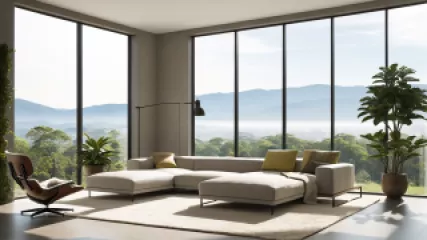How does space affect our psychology?
The Psychology of Space: How Does Space Affect Our Psychology?
Have you ever noticed how the space around you can impact your mood and emotions? Whether it's a cluttered room or a serene garden, the environment we inhabit has a profound effect on our psychological well-being. In this article, we will explore the fascinating field of psychology of space and delve into the ways in which our surroundings can shape our thoughts, feelings, and behaviors. So, let's begin our exploration into the intricate relationship between space and our psychology.
1. The Impact of Physical Environment
Our physical environment plays a crucial role in shaping our psychological state. From the layout of a room to the colors on the walls, every aspect of our surroundings can influence our emotional well-being. Research has shown that certain elements of the physical environment can have a direct impact on our mental health.
A cluttered space, for example, can lead to increased stress and anxiety. When our surroundings are disorganized, our minds tend to feel overwhelmed and chaotic. On the other hand, an organized and tidy space promotes a sense of calm and clarity. By decluttering our physical environment, we can create a more peaceful atmosphere conducive to positive mental health.
Color also plays a significant role in shaping our psychological state. Different colors have been found to evoke different emotions and moods. For instance, blue is often associated with calmness and tranquility, while red can elicit feelings of excitement and passion. By choosing the right color palette for our living or working spaces, we can create an environment that aligns with our desired emotional state.
2. The Role of Natural Elements
Bringing nature into our indoor spaces has been shown to have numerous psychological benefits. Exposure to natural elements such as plants, sunlight, and water can enhance our emotional well-being and overall mental health.
Research has indicated that spending time in nature or even just being surrounded by natural elements indoors can reduce stress, improve mood, and increase cognitive function. The presence of plants, for example, has been found to lower blood pressure, decrease anxiety, and improve concentration.
Furthermore, exposure to natural light is crucial for regulating our circadian rhythm, which affects our sleep patterns and overall mood. By ensuring that our indoor spaces are well-lit with natural light, we can promote a healthier sleep-wake cycle and enhance our mental well-being.
3. Designing Spaces for Mental Health
Given the significant impact of our surroundings on our psychological state, it is essential to consider interior design principles that promote mental health and well-being.
One key aspect is creating spaces that provide a sense of comfort and safety. This can be achieved through the use of soft textures, cozy furniture, and warm lighting. By designing spaces that make us feel secure and at ease, we can reduce stress and promote relaxation.
Another important consideration is incorporating elements of nature into our indoor spaces. This can be done by adding plants, using natural materials such as wood, or incorporating nature-inspired artwork. By bringing the outdoors inside, we can create a connection to nature that enhances our mental well-being.
In addition, it is crucial to create spaces that support social interaction and connection. Human beings are social creatures, and having meaningful connections with others is vital for our mental health. Designing spaces that encourage interaction, such as communal areas or open layouts, can foster a sense of community and belonging.
4. The Future of Space and Mental Health
As our understanding of the psychology of space continues to evolve, we can expect to see advancements in the design of environments that prioritize mental health.
Technological innovations, such as virtual reality, may provide new opportunities for creating therapeutic spaces. Virtual environments can be tailored to individual needs, allowing for personalized experiences that promote emotional well-being.
Furthermore, with the growing awareness of the importance of mental health, there is a rising demand for spaces that prioritize psychological well-being. Architects and designers are incorporating principles of biophilic design, which seeks to create spaces that mimic natural environments, into their projects. This approach aims to improve our connection to nature and enhance our overall mental health.
In Conclusion
The psychology of space highlights the profound impact our physical environment has on our mental health and well-being. By understanding how space affects our psychology, we can make deliberate choices in designing and organizing our surroundings to promote positive emotions, reduce stress, and enhance our overall mental well-being. Creating spaces that foster comfort, incorporate natural elements, and support social interaction can all contribute to a healthier and happier state of mind. So, let's embrace the power of space and harness its potential to uplift our psychological well-being.






